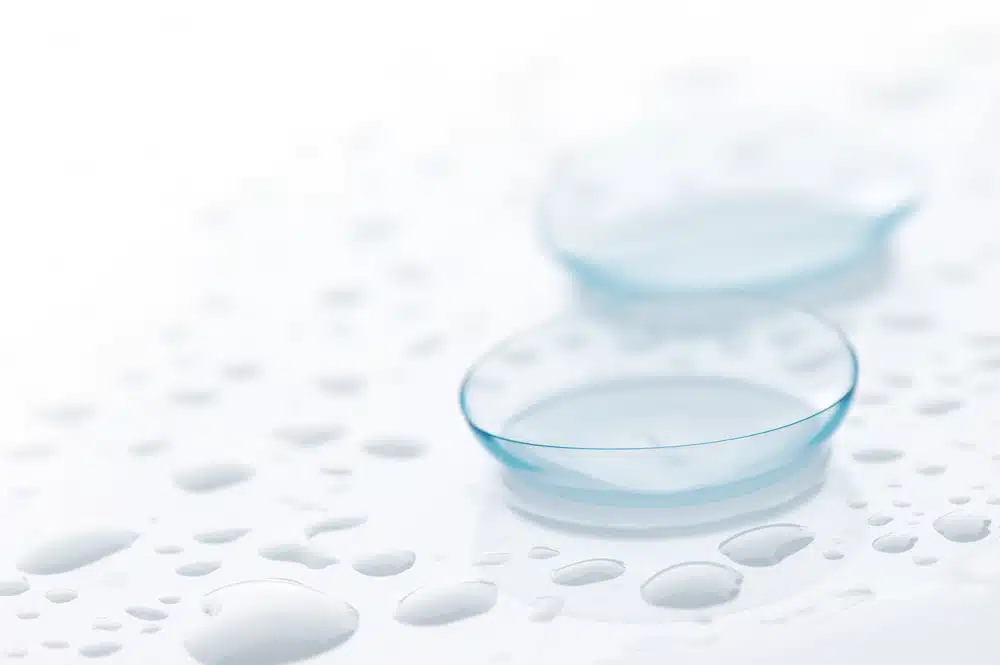When you require vision correction, deciding between contact lenses or glasses can be a tough decision to make. There are many factors to consider, such as comfort, budget, and lifestyle. Much of the decision really comes down to personal preference and which will benefit you the most. To help you in your decision, we’ve broken down a few of the pros and cons about each.
Contact Lenses
Pros
- Contacts can be more comfortable to wear since they’re placed on the eye and form to the curvature of it. That means you don’t have to contend with potential distortions from your glasses and frame. You get a clearer, wider field of view.
- If you lead an active lifestyle they can provide you with more freedom. They won’t get in the way when playing sports or exercising.
- Style doesn’t matter when you’re wearing contacts. Clearly there won’t be anything to get in the way of your outfit, so there’s no need to worry about clashing styles.
- Contacts won’t be affected by the weather like glasses. Eyeglasses can fog up during cold weather.
Cons
- It can be difficult for some people to put contacts in place and remove them. Many people find this simple, but for others, it can be enough reason to opt for eyeglasses instead.
- Contacts contribute to dry eye syndrome. This happens since they get placed over the eye. Eye drops can help hydrate the eye.
- Lens care and cleaning are required each day with contact lenses. The care of these is much more important than eyeglasses since they are place directly on the eye. Therefore maintenance is more demanding and essential.
- Falling asleep with contacts in can leave your eyes feeling irritated, dry, and red once you awake. If you get into a bad habit of falling asleep before removing them, glasses might be your best option.
Glasses
Pros
- Unlike contacts, you don’t have to constantly touch your eyes. Contacts require you to do so each time you apply or remove them, which can also promote the transference of bacteria.
- Glasses are simple to slip on and require no effort, unlike contacts, which can be a difficulty for some people.
- Glasses won’t irritate your eyes.
- They also tend to be more affordable than contacts since they don’t have to be replaced as often, and you can often keep your frames if you require a new prescription over time.
Cons
- Glasses can distort your peripheral vision since the frame sits a slight distance from your eyes. This can make it difficult to see properly.
- If you require a strong prescription, it could mean that you need thick lenses, which can be unappealing.
- Some people simply may not like how they look when wearing glasses.
- Glasses can place pressure on the points of the nose and leave indentations or even cause headaches for some people.
As you can see, there are a variety of advantages to both. But it’s important to find what feels most comfortable to you. Take the time to determine what you prefer so that you can see the world clearly and comfortably. Or why not opt for the best of both worlds and have both contacts and glasses?
